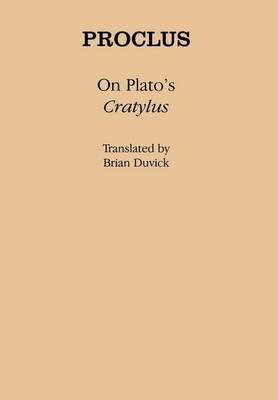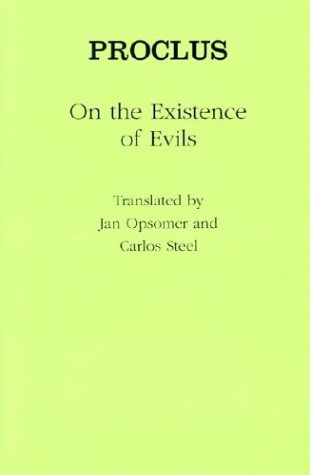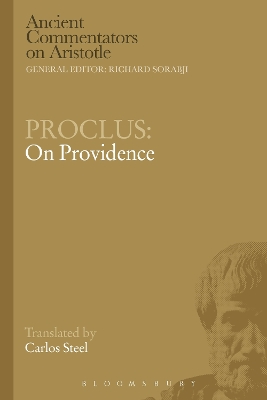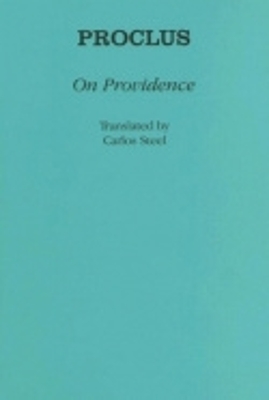Ancient Commentators on Aristotle
4 total works
Proclus' commentary on Plato's Cratylus is the only ancient commentary on this work to have come down to us, and is illuminating in two special ways. First, it is actually the work of two Neoplatonists. The majority of the material is supplied by the Athenian-based Proclus (c. 411-485 AD), who is well known for his magisterial commentaries on Plato's Timaeus and Parmenides, as well as for a host of other works involving the study of Plato. This material we have consists of excerpts from Proclus' commentary edited by another figure who appears to be a Platonist working somewhat later in Alexandria. Consequently it contains insights into the philosophy of both of the principal late antique centers of Platonism, Athens and Alexandria. Secondly, the material is divided between the grittier issues of language-theory, on which it engages freely with other ancient philosophies, and theological discussion mostly involved with the etymologies of the names of Greek gods, in which Proclus is more concerned to relate his own brand of Platonism to the 'Orphic' and 'Chaldaean' theological systems, and also to Homer. Brian Duvick's extensive notes bring out all these facets of the ancient text.
Proclus' "On the Existence of Evils" is not a commentary, but helps to compensate for the dearth of Neoplatonist ethical commentaries. The central question addressed in the work is: how can there be evil in a providential world? Neoplatonists agree that it cannot be caused by higher and worthier beings. Plotinus had said that evil is matter, which, unlike Aristotle, he collapsed into mere privation or lack, thus reducing its reality. He also protected higher causes from responsibility by saying that evil may result from a combination of goods. Proclus objects: evil is real, and not a privation. Rather, it is a parasite feeding off good. Parasites have no proper cause, and higher beings are thus vindicated as being the causes only of the good off which evil feeds.
'The universe is, as it were, one machine, wherein the celestial spheres are analogous to the interlocking wheels and the particular beings are like the things moved by the wheels' and all events are determined by an inescapable necessity. To speak of free choice or self determination is only an illusion we human beings cherish. Thus writes Theodore the engineer to his old friend Proclus. Proclus' reply is one of the most remarkable discussions on fate, providence and free choice in Late Antiquity. It continues a long debate that had started with the first polemics of the Platonists against the Stoic doctrine of determinism. How can there be place for free choice and moral responsibility in a world governed by an unalterable fate? Notwithstanding its great interest, Proclus' treatise has not received the attention it deserves, probably because the text survived only in a Latin medieval translation and, in its original language, is not very accessible to the modern reader. This volume, the first English translation of the work, redresses this problem and once again brings the arguments he formulates to the fore.
The universe is, as it were, one machine, wherein the celestial spheres are analogous to the interlocking wheels and the particular beings are like the things moved by the wheels and all events are determined by an inescapable necessity. To speak of free choice or self determination is only an illusion we human beings cherish. Thus writes Theodore the engineer to his old friend Proclus. Proclus' reply is one of the most remarkable discussions on fate, providence and free choice in Late Antiquity. It continues a long debate that had started with the first polemics of the Platonists against the Stoic doctrine of determinism. How can there be place for free choice and moral responsibility in a world governed by an unalterable fate? Notwithstanding its great interest, Proclus' treatise has not received the attention it deserves, probably because its text is not very accessible to the modern reader. It has survived only in a Latin medieval translation. This first English translation will bring the arguments he formulates again to the fore.



